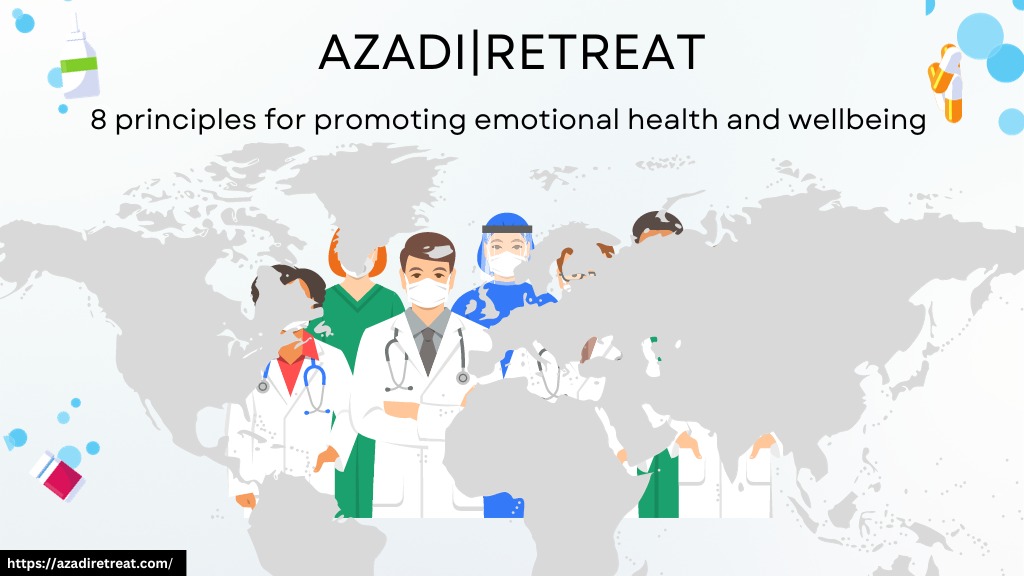Keeping oneself mentally and physically healthy is of utmost importance. However, people often do not pay much heed to mental well-being. Since the pandemic years, while mental health has made many heads turn, it has also made lots of people bury away their emotional health and wellbeing. Today, Azadi Retreat, one of the best self healing retreats, will make you go through eight principles on how to improve emotional well-being:
#1. Put a Full Stop on the Negative Self Talk.
It’s equally important to stop negative self-talk. It’s easy to get into a cycle of self-blame when something doesn’t go quite as planned. Catching yourself thinking this way, then changing the internal dialogue, can help you prioritize growth over perfection. Negative self-talk isn’t always a self-critique of specific characteristics or traits, though. It can also be an outlook as to whether something is possible, or you’re capable of achieving a goal you want to achieve.
#2. No Approvals From Others.
While seeking external approval is common and (depending on the source) can be helpful, it’s important to turn inward for self-validation as well. Taking the time to think about and assess your positive traits and skills can help you start to develop positive self-talk that ultimately improves self-esteem. Reflect on your strengths, values, and accomplishments. Acknowledge your unique qualities and embrace your individuality.
#3. Surrounding Oneself With Supportive People.
Social well being in mental health can help you see yourself in an improved or different light. That’s in part because social circles can help perpetuate habits, good and bad, research has found. Developing relationships with people who encourage you to pursue your unique interests and skills, and who embrace a growth mindset, rather than a stagnant one, can be helpful. Put active effort into cultivating supportive and fulfilling relationships with people in your life. This is what is fostered at our trauma healing retreat Bali.
#4. Set and Achieve Realistic Goals.
Setting and achieving goals can be a way to develop self-esteem because you’re able to see your capabilities expanding. But, it’s incredibly important to set realistic and attainable goals, meaning ones that, according to emotional well-being research, are moderately difficult to attain, but not out of reach.
#5. Go For Self-Compassion.
Not every day or situation is going to end up a “win,” so to speak, and it’s important to know how to give yourself grace and compassion when life doesn’t go as planned. With self-compassion, you’re offering yourself kindness.
#6. Stay Active.
As per an emotional well being coach, you don’t have to be an athlete or a diehard exercise fanatic to reap the benefits of regular exercise. Getting active regularly, even just taking a 30-minute walk most days of the week, can have positive effects on self-esteem.
#7. Get Enough Sleep.
Almost any habit that boosts self-care and overall health can positively impact self-esteem. One surefire way to help you feel better all-around is to make sure you’re getting enough sleep. Getting more sleep can help improve mood and cognitive function, which can, in turn, enhance self-esteem. It can also improve energy levels and reduce irritability.
#8. Do “Feel-Good” Social Well Being Activities.
It may sound like a no-brainer, but doing things that make you feel good is going to help you feel good about yourself. Engaging in enjoyable activities is an effective way to enhance overall emotional health, thereby boosting self-esteem and self-worth.
To cultivate mindfulness, get in touch with us at https://azadiretreat.com/.
